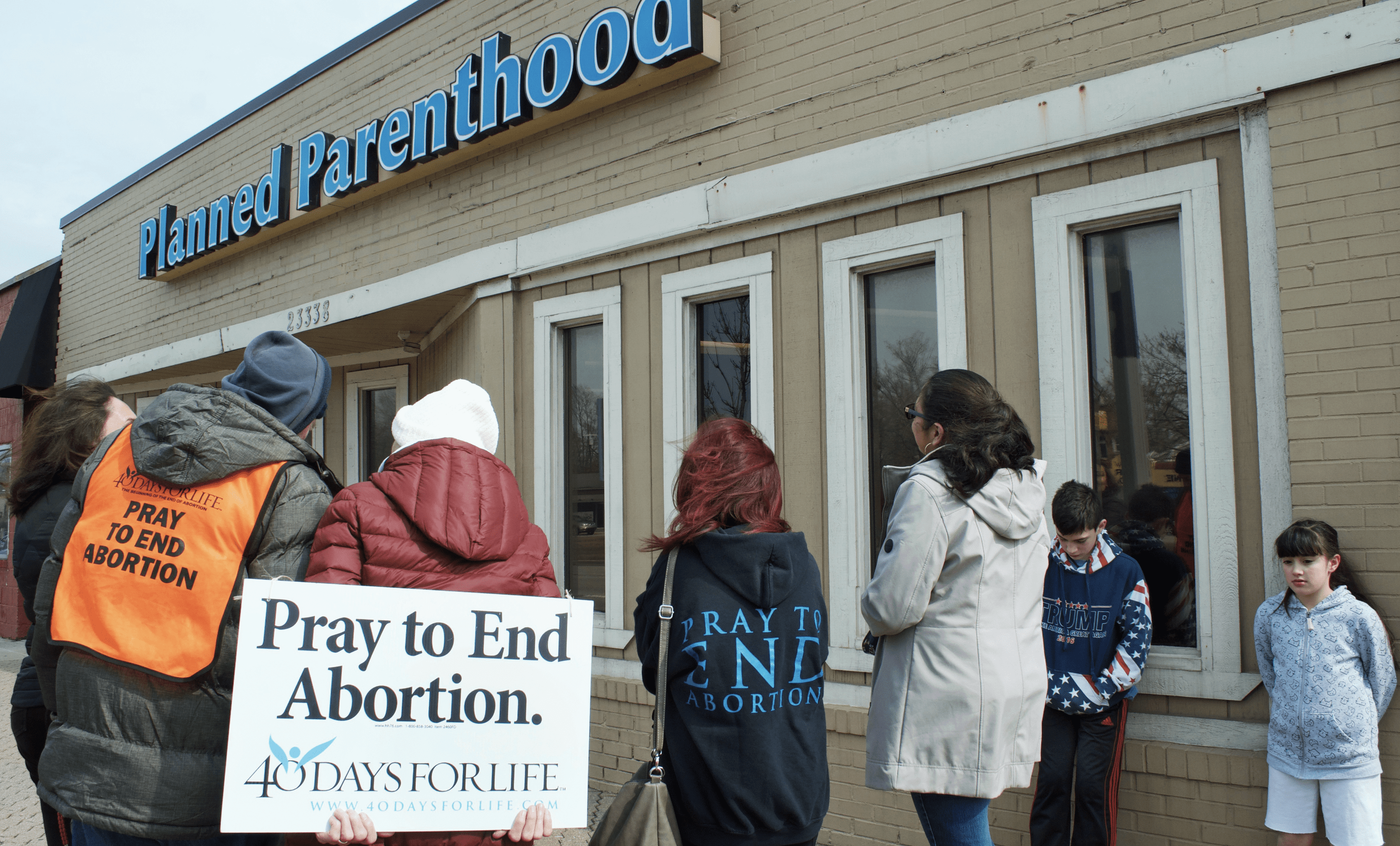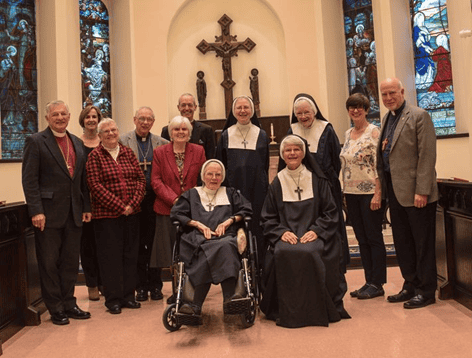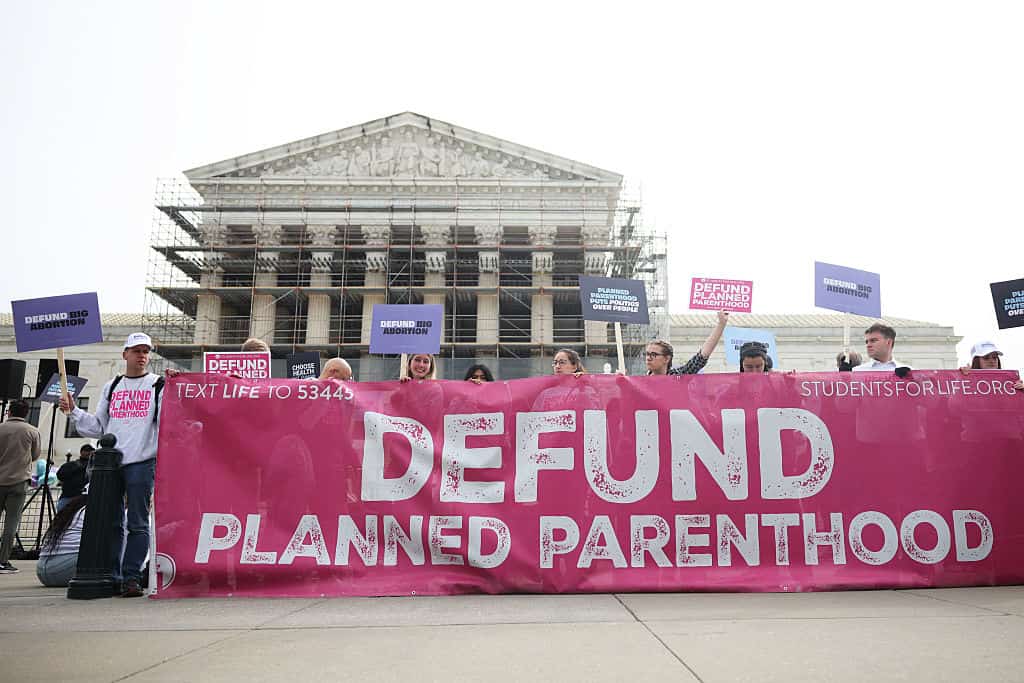Pro-life, Free Speech Win: Federal Appeals Court Blocks Kentucky ‘Buffer Zone’ Ordinance

The 6th U.S. Circuit Court of Appeals handed a group of pro-life sidewalk counselors in Kentucky a win recently when it issued a preliminary injunction preventing the County of Louisville-Jefferson from enforcing a local law designed to shield abortion sellers from pro-life activity in their immediate vicinity.
Several individuals and two pro-life organizations – Kentucky Right to Life and Sisters for Life – engage in compassionate sidewalk counseling in front of the EMW Women’s Surgical Center in Louisville, Kentucky, an abortion facility. They hand out pamphlets and talk to pregnant women entering the facility for abortions, hoping to convince them to choose life for their babies and offering help and life-giving alternatives.
The county, however, passed what is known as a “buffer zone” ordinance, prohibiting not just obstruction of medical facilities’ entrances, but any speech with persons entering those medical facilities. The sidewalk counselors did not challenge the part of the ordinance prohibiting physical obstruction of entrances to medical facilities, just the speech prohibitions.
Although a federal district court judge refused to help the sidewalk counselors threatened by the ordinance, on appeal the 6th Circuit saw the case differently. It invoked the 2014 U.S. Supreme Court decision in McCullen v. Coakley striking down a similar Massachusetts law for infringing First Amendment rights.
The 6th Circuit decision noted that one of the sidewalk counselors testified that prior to the ordinance’s passage, she routinely persuaded three to six women per month to forego having an abortion, while another said she successfully convinced approximately 60 women per year to choose life for their babies, but none afterwards.
That, said the appeals court, plainly shows the negative impact the ordinance was having on speech.
According to the unanimous three-judge decision written by Chief Judge Jeffery Sutton, the ordinance likely violated the First Amendment because it was unequally enforced against pro-life speech only, and was overbroad rather than narrowly tailored to address a specific issue.
“[T]he County disclaims any plans to enforce the ordinance against escorts of women into the Clinic, even though they have discussed abortion-related topics in the buffer zone in non-neutral ways,” Sutton wrote. “If that’s how the ordinance works—exempting pro-choice speakers while suppressing pro-life speakers—strict scrutiny would apply,” he added.
“Strict scrutiny” is legal shorthand for a test that the ordinance would have little chance of surviving.
But Sutton left a factual examination of the ordinance’s “selective” enforcement for the lower court in a future proceeding. He primarily faulted the ordinance for being overbroad rather than narrowly tailored, as the First Amendment requires.
“Because the County may not ‘burden substantially more speech than is necessary’ to further the County’s order and access interests . . . and because the County has not made any showing that all medical facilities need this kind of regulation, the ordinance lacks any tailoring, to say nothing of narrow tailoring. ‘For a problem shown to arise only . . . at one clinic,’ authorizing buffer zones ‘at every’ Louisville-Jefferson facility ‘is hardly a narrowly tailored solution.’”
The decision also criticized the county’s lack of serious effort to find less intrusive tools to accomplish its goal of ensuring access to facility entrances, such as using the abortion facility’s video surveillance recordings to identify and prosecute those obstructing or impeding access to entrances, rather than creating buffer zones that implicate and prohibit protected speech.
“More than some difficulty, however, is required to uphold regulations that suppress speech,” Judge Sutton emphasized. “A painted line on the sidewalk is easy to enforce, but the prime objective of the First Amendment is not efficiency,” he added, quoting a line from McCullen.
So, what happens next?
Francis Manion, Senior Counsel with the American Center for Law and Justice (ACLJ), represents the sidewalk counselors. He explained in a press release:
“While our clients are now protected by a preliminary injunction, a decision on a preliminary injunction does not end a lawsuit,” Manion said. “Once the Sixth Circuit sends the case back to the district court, the County will have to decide whether to abandon its ordinance and go back to the drawing board or dig in its heels and try to defend its ordinance to the bitter end.
“Either way, the ACLJ is prepared to do what we’ve been doing since day one: defending the free speech rights of sidewalk counselors.”
The case is Sisters for Life v. Jefferson-Louisville County KY Metro Government.
Photo from Shutterstock.
ABOUT THE AUTHOR

Bruce Hausknecht, J.D., is an attorney who serves as Focus on the Family’s judicial analyst. He is responsible for research and analysis of legal and judicial issues related to Christians and the institution of the family, including First Amendment freedom of religion and free speech issues, judicial activism, marriage, homosexuality and pro-life matters. He also tracks legislation and laws affecting these issues. Prior to joining Focus in 2004, Hausknecht practiced law for 17 years in construction litigation and as an associate general counsel for a large ministry in Virginia. He was also an associate pastor at a church in Colorado Springs for seven years, primarily in worship music ministry. Hausknecht has provided legal analysis and commentary for top media outlets including CNN, ABC News, NBC News, CBS Radio, The New York Times, the Chicago Tribune, The Washington Post, The Washington Times, the Associated Press, the Los Angeles Times, The Wall Street Journal, the Boston Globe and BBC radio. He’s also a regular contributor to The Daily Citizen. He earned a bachelor’s degree in history from the University of Illinois and his J.D. from Northwestern University School of Law. Hausknecht has been married since 1981 and has three adult children, as well as three adorable grandkids. In his free time, Hausknecht loves getting creative with his camera and capturing stunning photographs of his adopted state of Colorado.
Related Posts

New York Ends Fight to Force Nuns to Pay for Abortions
January 27, 2026



